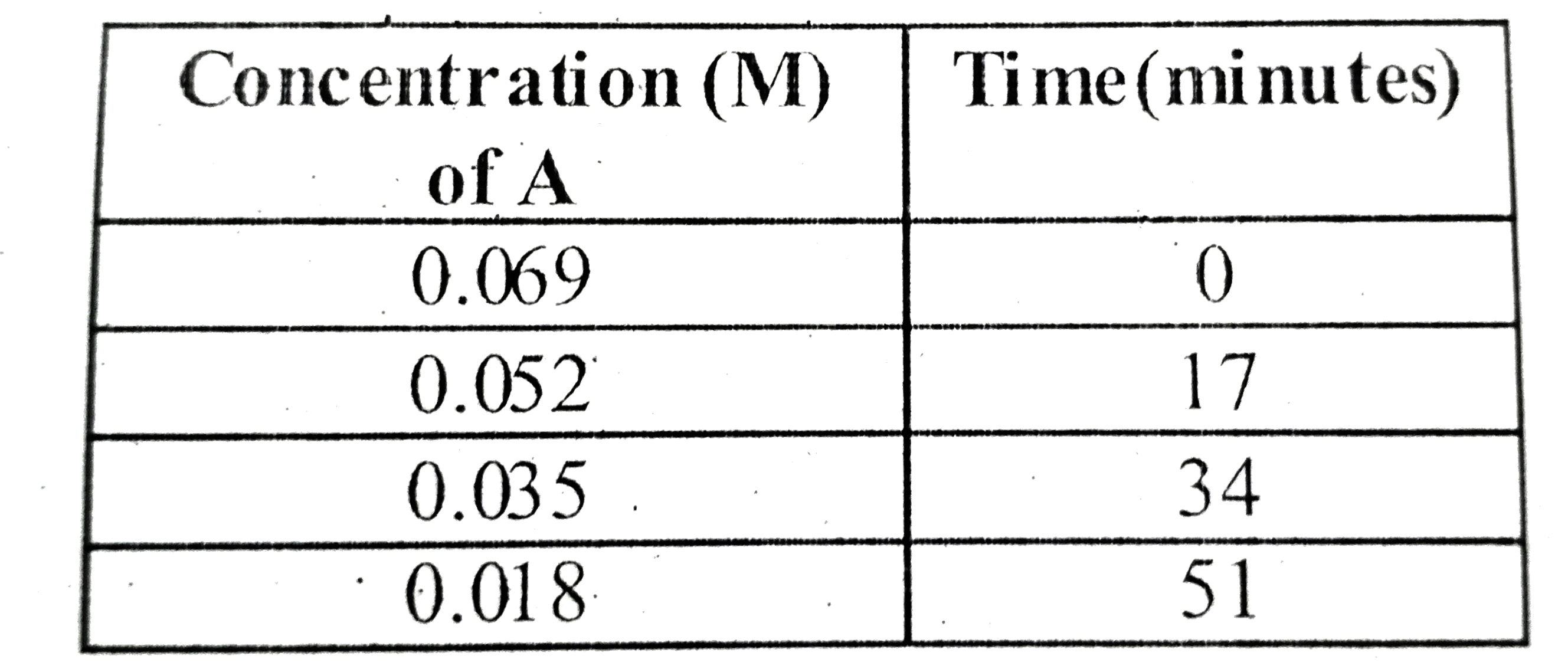A reaction involving two different reactants can never be:
Unimolecular reaction
First order reaction
second order reaction
Bimolecular reaction
The correct Answer is:A
For a unimolecular reaction only one reactant is involved.
Topper's Solved these Questions
- BOOK - VMC MODULES ENGLISHCHAPTER - CHEMICAL KINETICS EXERCISE - JEE Advanced (Archive)52videos
CHEMICAL KINETICS
- BOOK - VMC MODULES ENGLISHCHAPTER - CHEMICAL KINETICS EXERCISE - Level-2 ( Numerical Value Type for JEE Main )15videos
CHEMICAL KINETICS
- BOOK - VMC MODULES ENGLISHCHAPTER - CHEMICAL EQUILIBRIUMEXERCISE - IN-CHAPTER EXERCISE - G10videos
CHEMICAL EQUILIBRIUM
- BOOK - VMC MODULES ENGLISHCHAPTER - CHEMICAL THERMODYNAMICS EXERCISE - IN - CHAPTER EXERCISE - L10videos
CHEMICAL THERMODYNAMICS
Similar Questions
Knowledge Check
- Question 1 - Select One
 reactant (A) can be :A
reactant (A) can be :A B
B C
C DAll of these
DAll of these
Give balance equations for -i. A direct combination reaction involving two elements, one of which is a non metal ii. A thermal decomposition reaction involving heat on limestone [calcium carbonate] iii. An electrolytic decombosition reaction involving a neutral liquid iv. A displacement reaction involving a metal above hydrogen in the activity series with copper [II] sulphate solution v. A double decomposition neutralization reaction involving an acid & a base vi. A white precipitate obtained during a double decomposition reaction involving a silver salt with a sodium salt.
View SolutionStatement A : Action and reaction act on two different bodies
Statement B : Action, reaction never cancel each otherView SolutionStatement A : Action and reaction act on two different bodies
Statement B : Action, reaction never cancel each otherView SolutionIf a reaction involves gaseous reactants and Products, the units of its rate are
View SolutionThe concentrations of the reactant A in the reaction A →B at different times are given below:

The rate constant of the reaction according to the correct order of reaction is :View SolutionThe reaction, A + B → P can never be
View SolutionThe rate of reaction between two reactants A and B decreases by factor 4 if the concentration of reactant B is doubled. The order of this reaction with respect to B is
View Solution

